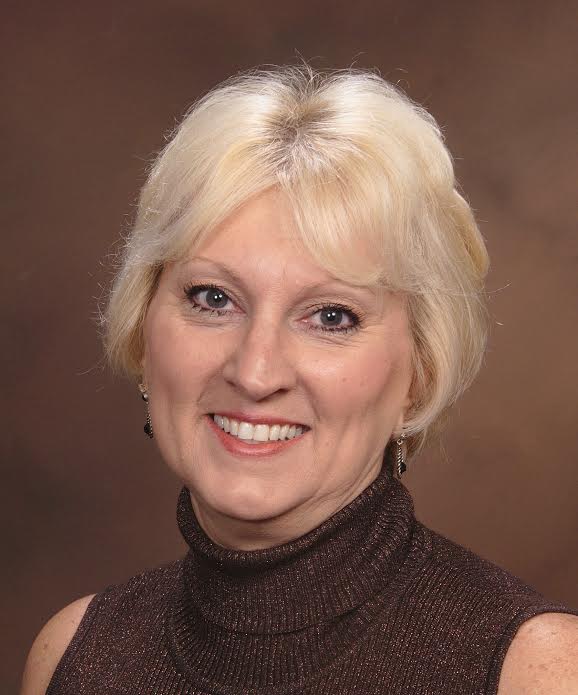Advertisement
What is the Future State of the Mortgage Industry?

How will a multi-trillion dollar industry that consists of 300,000 employees (according to the Bureau of Labor Statistics) handle the replenishing of its human capital? Will it be viewed as an expense or an asset? How critical has the need to replenish become industrywide in an industry with the average age of its professionals in the 55-plus-year-old range?
The Bureau of Labor Statistics’ (BLS) outlook for loan originators is an increase of eight percent from 2014-2024. The BLS data shows the average salary of a loan officer is $63,403, slightly more than $30 an hour, with at minimum, a bachelor’s degree along with additional training. The current age of the youngest Baby Boomer is 52, the oldest is 70, with Generation X ranging in age from 36-51 and Millennials’ age range from 19 to 35.
What strategy will be used for hiring new loan officers? Where will they come from? How will you choose the best suited individual for the role of loan originator, underwriter, processor or manager? What age are Baby Boomers retiring? New statistics show that 30 percent of Baby Boomers are continuing to work after age 65. Life expectancy rates have increased, as a male’s life expectancy if currently age 65, are estimated to live to be 77-and-a-half and females to the age of 88.
With Baby Boomers having both knowledge and work experience, many of them are carrying debt and will continue to work. This may be seen as an opportunity for many companies to keep their employees on longer than the average retirement age of 62, with many expecting to work until they reach age 70. Social Security income often increases substantially for those who can put off the early start to a later date.
In addition, the careful planning of hiring on both Generation X and Millennials could be tricky for the human resources leader. How to determine the right mix is going to be essential as the workforce becomes more diversified in age. Generation X probably has the highest amount of current employees in most industries.
Be prepared for the increase in Millennials, with immigration adding more numbers to this group more than any other. The Millennial population is projected to peak in 2036 at 81.1 million, as quoted by Fry, The Pew Research Center. Thereafter, the oldest Millennial will be at least 56 years of age and mortality is projected to outweigh net immigration. By 2050, there will be a projected 79.2 million Millennials.
What is the industry doing to attract newbies into the work force? Two of our industry leaders, Fannie Mae and Freddie Mac, shared their insight on hiring young blood.
Fannie Mae says, “That they are consistently open-minded and looking to recruit and retain young and talented individuals. Fannie Mae offers two programs to assist in this endeavor, their summer internship programs and Associate Program. These originally were division-specific programs that allowed entry-level talent to rotate through four sectors for duration of two-years. During the two-year process, Fannie Mae associates receive on-the-job training, with additional education in soft skills and leadership. As they near the end of the two- year program, Fannie Mae’s institutes a career team who will work with them to identify a new full-time position within the Fannie Mae organization.”
Jerry Weiss, Freddie Mac EVP and chief administrative officer, said, “Freddie Mac places a high priority on engaging Millennials in the workplace–it’s just smart business. Effectively harnessing their talent and skills makes us a stronger company, drives innovation, and helps us more effectively respond to changing needs in the marketplace.”
The housing market has become more technology-driven, therefore Millennial talent is being sought after with both zeal and caution. This opens the door for the talent many Millennials can offer. But technology talent isn’t enough … with new and old regulatory rules abound, the newbie must be knowledgeable in the new federal rules, as well as their own state rules. Add in the skill set of building relationships, finance and sales, it’s a lot to find in any one individual.
In addition, not all companies feel warm fuzzies towards Millennials, as oftentimes the Millennial is feared as many hold the power to be independent-thinkers, and company owners. Therefore, it crosses the minds of those hiring Millennials to be wary of superstar personas. Will they later face them in a company take over, or will they gather client data to be used in the future for their personal gain?
This is not to say the hiring of Millennials in any way negative. It simply holds a higher risk of self-gratification than past employees because they are smart, tech-savvy and fearless. They have faced more terror in their lives on their homeland than any Baby Boomer or even most Generation X’ers ever did in their early years of life from 9-11, to the Boston bomber, to current affairs of riots and police shootings … they have been forced to learn to survive!
The $1 trillion mortgage industry must plan for the replenishment of human capital in such a manner that it encompasses the seasoned Baby Boomers’ experience, the Generation Xer’s work-life balance mentality, adding the power of the Millennial. Historically, the industry had an average growth rate and average attrition until 2008 when the housing crisis took hold.
The housing crisis affected unemployment across the country in many industries, but the mortgage industry was hit hardest. We saw the closing of major billion dollar players in the industry, Countrywide Financial, Lehman Brothers, Wachovia, GMAC, Merrill Lynch, Bear Stearns and Washington Mutual, to name a few, either closed, filed bankruptcy or were taken over by another larger conglomerate. Hundreds of thousands of jobs were lost and the industry has been in rebuild mode ever since. I would say the state of the industry is better today than it has been in many years, but it now is facing the loss of many seasoned employees as they age, how will they replace this talent is the new dilemma.
With the magnitude of the many closings that took place, it left many highly-trained and qualified individuals unemployed. Filling positions wasn’t a problem, as qualified candidates were abundant, and so the old blood was used like a much needed transfusion. The old blood gave and stood tall through the housing crisis, as the crisis is coming to its end, new light must be shed on new blood for the future state of the industry.
Some thoughts would be to capitalize on the strengths of the seasoned, veteran employees by restructuring their duties to encompass training newbies. Have them play an advisory role … what worked in the past, what didn’t work in the past, what changes need to be implemented. History often repeats itself, so utilize the knowledge and talent currently held in your organization. Keep jobs open to those capable of working later than average retirement age. Attract new Millennials with the opportunity to start now, learn the ropes and add their own flair and knowledge “to make it their own” position within the company.
Lastly, I see the need for an educational component within the colleges and universities to offer a program targeted for those who want to follow the mortgage industry career path. We currently have college or the like programs for cosmetology, paralegals, income tax preparation, and a multitude of other career choices, perhaps it’s time that we lobby for a two- or four-year degree program in the field of mortgage-related positions, from the management level, to originators, underwriters, processors, social media reps, account reps, closers and more. My suggestion would be an Associate Degree in Business Administration, with a minor in Lending, or a Bachelor of Arts Degree with a Major in Lending.
 Laura Burke, MBA, MS, MIS, CFE, EA is an author, with 20-plus years of experience in the mortgage arena. She has been in the trenches as a loan officer, originating more than $35 million (her best year) to CEO of her own mortgage company. Laura was chosen as a member to the IRS IRPAC Committee in 2016, where she will serve a three-year term. As an enrolled agent, she is knowledgeable in tax law and provides a multitude of tax services to her clients at Global Tax Masters. Laura is also a member of the Governor State University’s Inclusive Leadership Conference Planning Committee. The Leadership Conference helps students understand the intersection of leadership, diversity, and social justice. She may be reached by e-mail at [email protected].
Laura Burke, MBA, MS, MIS, CFE, EA is an author, with 20-plus years of experience in the mortgage arena. She has been in the trenches as a loan officer, originating more than $35 million (her best year) to CEO of her own mortgage company. Laura was chosen as a member to the IRS IRPAC Committee in 2016, where she will serve a three-year term. As an enrolled agent, she is knowledgeable in tax law and provides a multitude of tax services to her clients at Global Tax Masters. Laura is also a member of the Governor State University’s Inclusive Leadership Conference Planning Committee. The Leadership Conference helps students understand the intersection of leadership, diversity, and social justice. She may be reached by e-mail at [email protected].
 Laura Burke, MBA, MS, MIS, CFE, EA is an author, with 20-plus years of experience in the mortgage arena. She has been in the trenches as a loan officer, originating more than $35 million (her best year) to CEO of her own mortgage company. Laura was chosen as a member to the IRS IRPAC Committee in 2016, where she will serve a three-year term. As an enrolled agent, she is knowledgeable in tax law and provides a multitude of tax services to her clients at Global Tax Masters. Laura is also a member of the Governor State University’s Inclusive Leadership Conference Planning Committee. The Leadership Conference helps students understand the intersection of leadership, diversity, and social justice. She may be reached by e-mail at [email protected].
Laura Burke, MBA, MS, MIS, CFE, EA is an author, with 20-plus years of experience in the mortgage arena. She has been in the trenches as a loan officer, originating more than $35 million (her best year) to CEO of her own mortgage company. Laura was chosen as a member to the IRS IRPAC Committee in 2016, where she will serve a three-year term. As an enrolled agent, she is knowledgeable in tax law and provides a multitude of tax services to her clients at Global Tax Masters. Laura is also a member of the Governor State University’s Inclusive Leadership Conference Planning Committee. The Leadership Conference helps students understand the intersection of leadership, diversity, and social justice. She may be reached by e-mail at [email protected].This article originally appeared in the October 2016 print edition of National Mortgage Professional Magazine.
About the author




